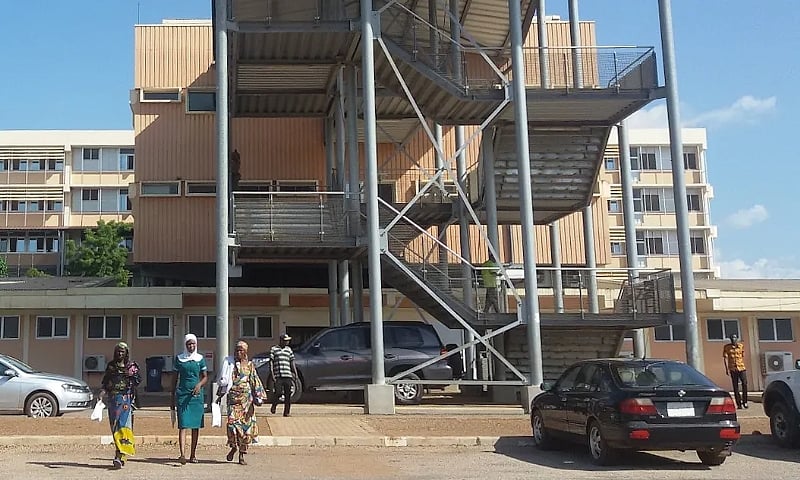The Tamale Teaching Hospital (TTH) has issued a statement addressing the recent social media uproar concerning the death of a patient in its Accident and Emergency Ward. The hospital’s statement clarifies that the patient’s death was not a result of negligence, as alleged on social media, but rather a confluence of unfortunate circumstances, including the unavailability of a specialized procedure and the lack of available ICU beds. The patient, who had been referred from another facility, required a specific procedure that TTH, despite serving as a major referral center for the northern sector of Ghana, is not yet equipped to perform. This inability to provide the required care played a significant role in the unfortunate outcome. Furthermore, at the time of the patient’s arrival, all four beds in the hospital’s Intensive Care Unit (ICU) were occupied. This highlights the critical shortage of ICU capacity at TTH, which serves as the primary ICU facility for the entire northern region of the country. The combination of these two factors – the unavailability of the specialized procedure and the lack of ICU beds – directly contributed to the patient’s demise. The hospital has launched an internal investigation to thoroughly examine the circumstances surrounding the death and has appealed for public restraint while the investigation is underway.
The incident throws into sharp relief the challenges faced by the Tamale Teaching Hospital and, more broadly, the healthcare system in northern Ghana. TTH serves as the main referral hospital for a large and geographically dispersed population, placing immense pressure on its resources and personnel. The lack of specialized procedures and the limited ICU capacity underscore the need for increased investment in healthcare infrastructure and equipment in the region. The hospital’s dependence on only four ICU beds to cater to the entire northern sector is a critical vulnerability that needs immediate attention. This scarcity of critical care resources places patients at increased risk, particularly those requiring specialized interventions or intensive monitoring. The situation is further compounded by the fact that TTH often receives referrals from other facilities that lack the capacity to manage complex cases, further straining its resources and highlighting the uneven distribution of healthcare capabilities across the country. The incident underscores the urgent need for a comprehensive review of healthcare resource allocation and the development of strategies to strengthen regional healthcare capacities, ensuring that all citizens have access to essential medical services.
While the hospital’s statement provides some context for the unfortunate event, it also raises several important questions. The absence of the specific procedure at TTH raises concerns about the accessibility of specialized medical services in northern Ghana. It begs the question of where patients requiring such procedures are expected to seek treatment, given the limitations of TTH, the main referral hospital for the region. Furthermore, the lack of ICU bed availability underscores the critical shortage of essential resources at the hospital. It highlights the precarious situation patients face when critical care is needed, particularly in emergencies. The limited ICU capacity also raises questions about the hospital’s contingency plans for managing patient influx during emergencies or periods of high demand. The incident underscores the need for transparent and readily available information about the hospital’s capabilities and limitations, so that referring facilities can make informed decisions about patient transfers and alternative care options.
This tragic event emphasizes the importance of proactive measures to strengthen the healthcare system in northern Ghana. Investing in advanced medical equipment, training specialized personnel, and expanding critical care capacity are essential steps towards improving patient outcomes. The development of robust referral systems and efficient communication channels between healthcare facilities is crucial to ensure that patients receive timely and appropriate care. Strengthening primary healthcare services and equipping district hospitals to manage less complex cases could also help alleviate the burden on TTH and improve overall healthcare access in the region. Furthermore, initiatives to attract and retain qualified medical professionals in underserved areas are crucial for ensuring the long-term sustainability of healthcare improvements. A comprehensive approach that addresses both immediate needs and long-term capacity building is necessary to create a resilient and equitable healthcare system capable of meeting the demands of the population.
The hospital’s decision to launch an internal investigation is a necessary step towards understanding the events that led to the patient’s death and identifying areas for improvement. A thorough and impartial investigation is crucial for building public trust and ensuring accountability within the healthcare system. The investigation should not only examine the specific circumstances of this case but also delve into the broader systemic issues that contributed to the tragedy. This includes assessing the hospital’s protocols for managing critically ill patients, evaluating the availability and functionality of essential equipment, and reviewing the communication and coordination processes between different healthcare facilities. The findings of the investigation should be made public to ensure transparency and inform future policy decisions aimed at strengthening the healthcare system.
The incident at TTH serves as a stark reminder of the challenges faced by healthcare systems in resource-constrained settings. It highlights the urgent need for increased investment in infrastructure, equipment, and human resources to ensure that all citizens have access to quality healthcare services. The tragedy also underscores the importance of effective referral systems, efficient resource allocation, and strong communication networks between healthcare facilities. Addressing these challenges requires a multi-faceted approach involving government commitment, community engagement, and collaboration among healthcare professionals. Investing in healthcare is not merely an expenditure but a crucial investment in human capital and national development. Ultimately, a strong and resilient healthcare system is essential for ensuring the well-being and prosperity of any nation.














